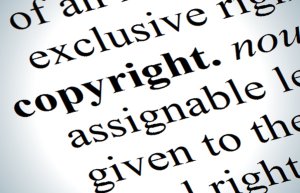 A long-standing problem with digital art is that it can be easily copied, even stolen, leaving artists with little control over their work. But now, with help from the blockchain technology underlying the Bitcoin digital currency, graphic artists and illustrators are finding a new marketplace that protects their pieces’ originality and authenticity.
A long-standing problem with digital art is that it can be easily copied, even stolen, leaving artists with little control over their work. But now, with help from the blockchain technology underlying the Bitcoin digital currency, graphic artists and illustrators are finding a new marketplace that protects their pieces’ originality and authenticity.
“It’s a very interesting time to be not only a digital artist, but also a young collector,” said QuHarrison Terry, co-founder and chief executive officer of Victory is Very Illuminating Inc., also known as 23VIVI, a Madison start-up that is among the pioneers in creating a marketplace for the art.
The company has a website that is only 8 weeks old. But Terry and co-founder Ryan Cowdrey have experience and influence in the digital art world.
Source: JS Online

 Academic work is pirated for much the same reasons that music was in the early 2000s—not just because people prefer to get something for free, but because the industry’s distribution model is deeply broken. Academic publishing is dominated by for-profit companies including Reed Elsevier, Taylor & Francis, and Sage, and many university libraries, even at large research institutions, can’t afford the high subscription fees for all of the journals their faculty need.
Academic work is pirated for much the same reasons that music was in the early 2000s—not just because people prefer to get something for free, but because the industry’s distribution model is deeply broken. Academic publishing is dominated by for-profit companies including Reed Elsevier, Taylor & Francis, and Sage, and many university libraries, even at large research institutions, can’t afford the high subscription fees for all of the journals their faculty need.
 Comcast today announced that it has entered into a content licensing agreement with The Walt Disney Studios to start offering a selection of digital library titles and new releases as they become available from Disney, Walt Disney Animation Studios, Disney•Pixar, Marvel Studios, Lucasfilm, Disneynature and Touchstone Pictures via the Xfinity On Demand digital store. Effective immediately, customers can buy Star Wars: The Force Awakens, the latest blockbuster hit in the Star Wars franchise just released on Digital HD and SD directly from their TV or via the Xfinity TV website to enjoy the film at home or on the go.
Comcast today announced that it has entered into a content licensing agreement with The Walt Disney Studios to start offering a selection of digital library titles and new releases as they become available from Disney, Walt Disney Animation Studios, Disney•Pixar, Marvel Studios, Lucasfilm, Disneynature and Touchstone Pictures via the Xfinity On Demand digital store. Effective immediately, customers can buy Star Wars: The Force Awakens, the latest blockbuster hit in the Star Wars franchise just released on Digital HD and SD directly from their TV or via the Xfinity TV website to enjoy the film at home or on the go.




